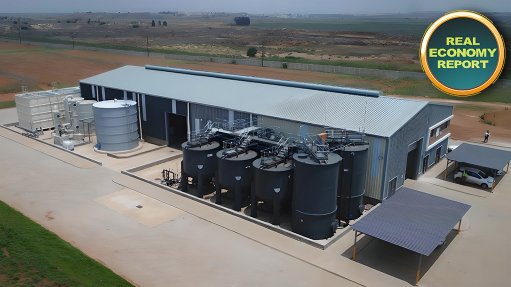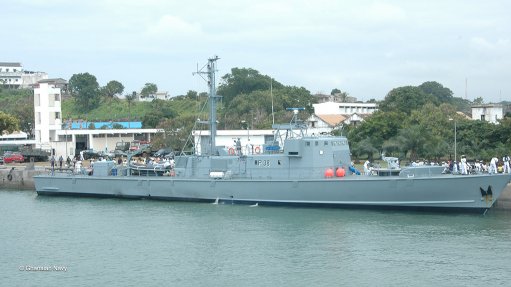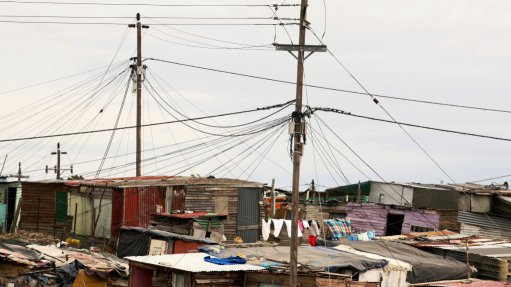PVInsight tests its 20 000th solar PV module

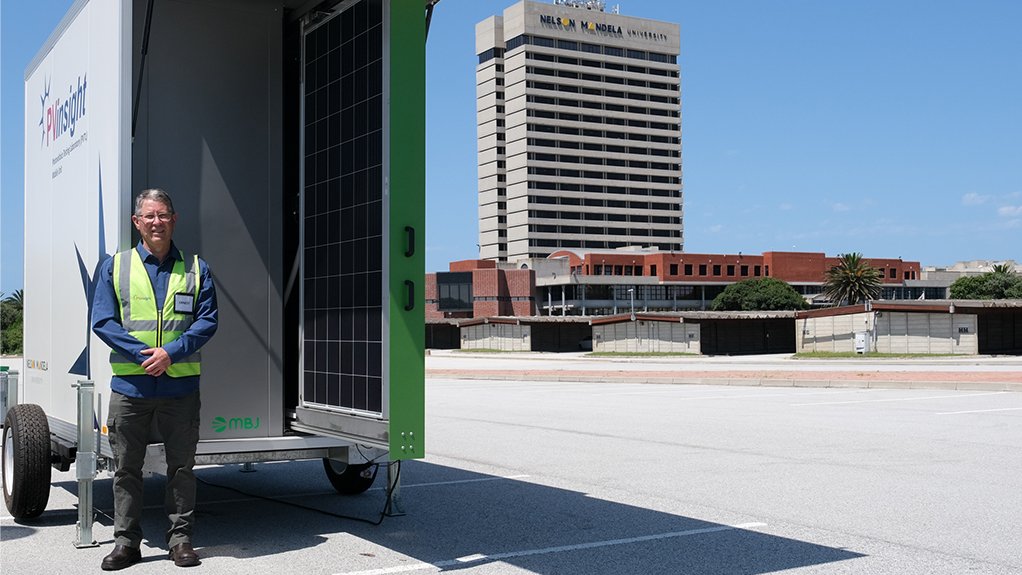
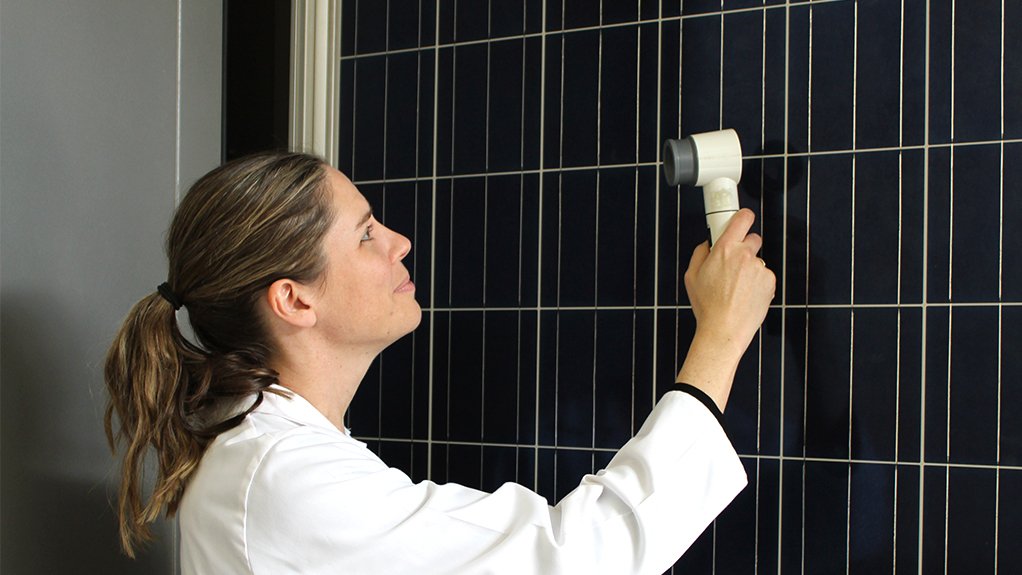
PVInsight MD and founder Ernest van Dyk with the only accredited South African mobile solar photovoltaic panel testing lab
PVInsight quality and technical manager Dr Jacqui Crozier McCleland
Consider a large solar photovoltaic (PV) plant with 300 000 PV modules or panels as they are commonly called. How do you know whether they meet the quality or power output standards specified by the manufacturer? You will need to test 300 to 500 of them on a plant of this size, preferably before installation or on site if they are already installed.
With solar PV being one of South Africa’s fastest-growing industries, it is essential to independently test the quality, performance and durability of a sample of modules at every plant. The size of the sample is determined by the size of the plant according to specific standards.
Without independent testing there is no assurance that the PV modules meet the manufacturer's specifications and there is a risk that lower-quality modules can be sold at higher prices. You also do not want to find out months or years down the line that there are problems with their performance.
“PVInsight recently tested our 20 000th module,” says its MD and founder, professor of physics, Ernest van Dyk. The company was established in 2017, after being spun out of a lab established in 2014.
“An enormous volume of modules are being imported and we want to make people aware that the quality of the modules can and should be tested on arrival, as should their performance and degradation levels over time,” says Van Dyk. “This is to make sure that the modules are meeting the manufacturers’ specifications and to identify any problems.”
Situated on the Ocean Sciences Campus at Nelson Mandela University (NMU), in Gqeberha, in the Eastern Cape, PVInsight performs consulting and laboratory testing services on PV modules, and offers the only accredited mobile laboratory testing service in South Africa. It does testing on all commercially available modules, including the new, larger, bifacial format.
“Our testing is done according to the International Electrotechnical Commission (IEC) standards and we are accredited as a testing laboratory with the South African National Accreditation System,” says Van Dyk. The company is run by a team of physicists and researchers from NMU and was spun-out of the Photovoltaics Research Group (PVRG) in the Department of Physics. Postgraduate students from the PVRG also gain invaluable experience working in the laboratory and in situ on PV power plants.
“We have over 30 years of experience and knowledge of PV systems and device research,” explains Van Dyk. “We test modules at all levels, from the utility scale that feeds into the electricity grid to plants that power industries, companies and communities.”
The head of PVInsight's project development, Dr Freddie Vorster, says the team members’ close involvement with PV research at an international and South African university level, ensures that they keep abreast of the latest developments in solar module types and new characterisation techniques.
“Through our close association with cutting-edge university research, PVInsight also contributes towards the development of novel solar module characterisation techniques that thoroughly test the durability of module solar cells and encapsulation materials under harsh environmental conditions,” Vorster explains.
Each PV plant project developer has to achieve power deliverables according to the contract, and the plant needs to maintain the agreed-upon levels of performance. From installation, the modules need to be tested regularly to verify their quality and performance over time.
Ideally, the testing component should be included in pre-installation contracts, and the manufacturer should be made aware that the modules will be tested from the outset. It is a significant advantage to have a baseline record from pre-installation of the modules so that any questions about performance or degradation can be monitored and rapidly detected. When clients are armed with an accredited module evaluation, it greatly empowers them in terms of recourse with the manufacturer or project developer should any problems be detected.
“We do testing according to international standards, we have solar simulators which use a light-emitting diode light source to simulate the sun to enable the measurement of the power output of the modules. Our solar simulators are A+A+A+ rated, which indicates the best possible match in terms of spectrum, uniformity and stability,” explains PVInsight's quality and technical manager, Dr Jacqui Crozier McCleland, who has a PhD in physics.
The team does a range of measurements for performance on PV modules to determine the module quality. These include a visual inspection for a predefined set of criteria and defects. This is a basic test to see if there are any problems at this level. The maximum power determination test, which assesses whether the modules are producing the specified power, and the electrical insulation (hi-pot) test, make sure the module is safe and there are no current leakages.
“From here we do Electroluminescence imaging tests to see if the modules are damaged in any way, which could happen during the manufacturing process or when they are transported and handled,” Crozier McCleland continues. “The light emitted by the modules is not in the visible spectrum and you cannot see it with the naked eye. A special camera is used to pick up any cracks or defects in the cells.”
All these tests can be done at the lab in Gqeberha or on-site with the mobile lab. PVinsight is currently the only lab doing these accredited tests at PV plants.
-Article written by specialist writer Heather Dugmore.
Comments
Press Office
Announcements
What's On
Subscribe to improve your user experience...
Option 1 (equivalent of R125 a month):
Receive a weekly copy of Creamer Media's Engineering News & Mining Weekly magazine
(print copy for those in South Africa and e-magazine for those outside of South Africa)
Receive daily email newsletters
Access to full search results
Access archive of magazine back copies
Access to Projects in Progress
Access to ONE Research Report of your choice in PDF format
Option 2 (equivalent of R375 a month):
All benefits from Option 1
PLUS
Access to Creamer Media's Research Channel Africa for ALL Research Reports, in PDF format, on various industrial and mining sectors
including Electricity; Water; Energy Transition; Hydrogen; Roads, Rail and Ports; Coal; Gold; Platinum; Battery Metals; etc.
Already a subscriber?
Forgotten your password?
Receive weekly copy of Creamer Media's Engineering News & Mining Weekly magazine (print copy for those in South Africa and e-magazine for those outside of South Africa)
➕
Recieve daily email newsletters
➕
Access to full search results
➕
Access archive of magazine back copies
➕
Access to Projects in Progress
➕
Access to ONE Research Report of your choice in PDF format
RESEARCH CHANNEL AFRICA
R4500 (equivalent of R375 a month)
SUBSCRIBEAll benefits from Option 1
➕
Access to Creamer Media's Research Channel Africa for ALL Research Reports on various industrial and mining sectors, in PDF format, including on:
Electricity
➕
Water
➕
Energy Transition
➕
Hydrogen
➕
Roads, Rail and Ports
➕
Coal
➕
Gold
➕
Platinum
➕
Battery Metals
➕
etc.
Receive all benefits from Option 1 or Option 2 delivered to numerous people at your company
➕
Multiple User names and Passwords for simultaneous log-ins
➕
Intranet integration access to all in your organisation










